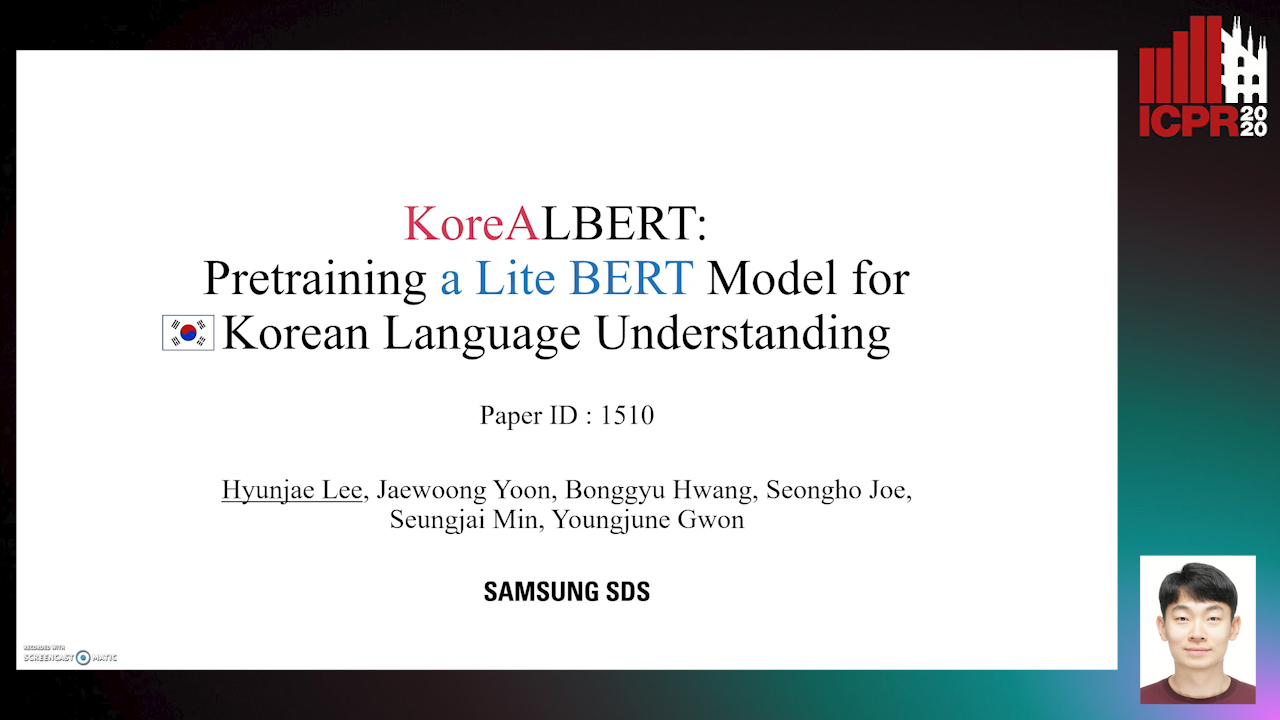Seungjai Min
Papers from this author
Analyzing Zero-Shot Cross-Lingual Transfer in Supervised NLP Tasks
Hyunjin Choi, Judong Kim, Seongho Joe, Seungjai Min, Youngjune Gwon

Auto-TLDR; Cross-Lingual Language Model Pretraining for Zero-Shot Cross-lingual Transfer
Abstract Slides Poster Similar
KoreALBERT: Pretraining a Lite BERT Model for Korean Language Understanding
Hyunjae Lee, Jaewoong Yun, Bongkyu Hwang, Seongho Joe, Seungjai Min, Youngjune Gwon

Auto-TLDR; KoreALBERT: A monolingual ALBERT model for Korean language understanding
Abstract Slides Poster Similar